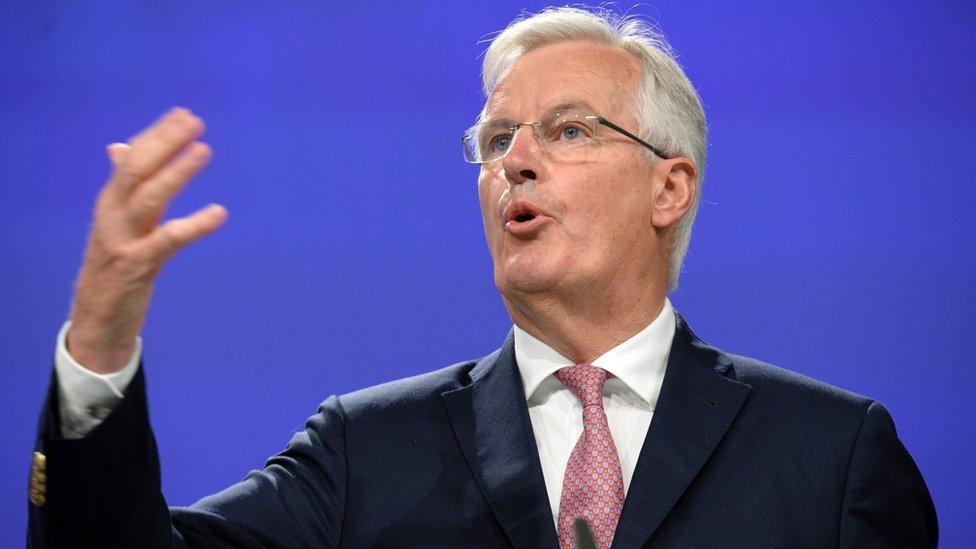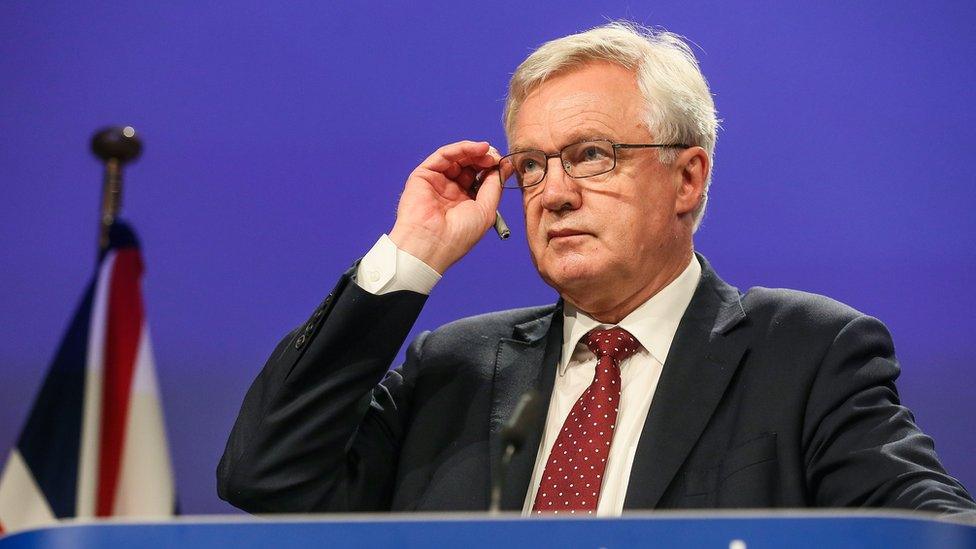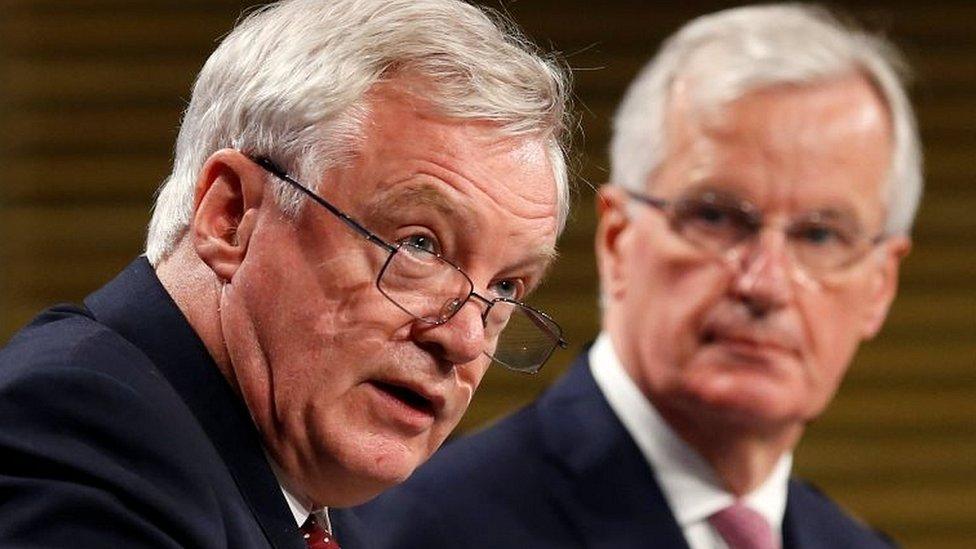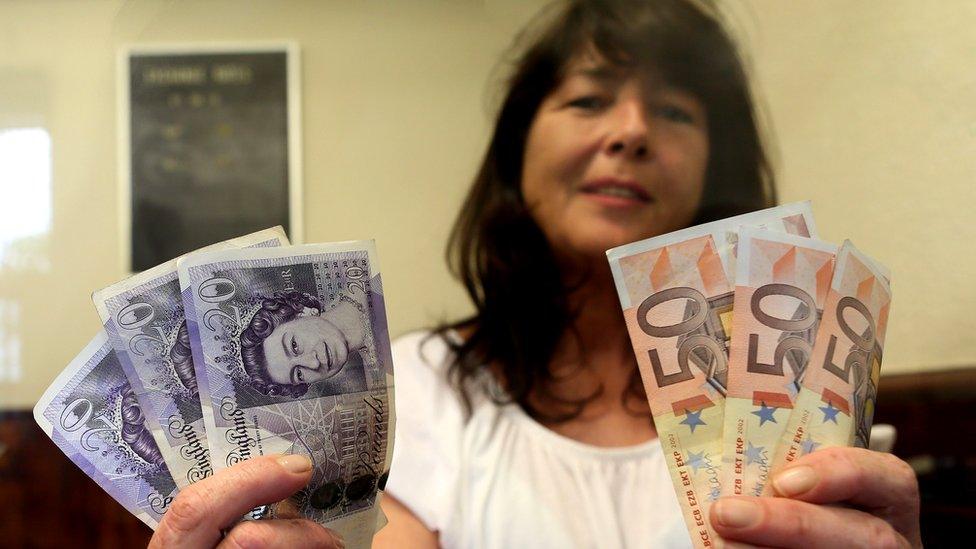Brexit: More detail needed on Good Friday Agreement impact, says Barnier
- Published

Work is needed on protecting cross-Irish border co-operation, said Michel Barnier
More detailed discussions are needed on how Brexit will affect the Good Friday peace agreement in Northern Ireland, according to the EU's chief negotiator.
Michel Barnier also said more work needs to be done to protect cross-Irish border co-operation "in particular".
He was speaking at the end of the second week of Brexit negotiations with the UK in Brussels on Thursday.
He described north-south co-operation in Ireland as being "embedded in the common framework of EU law".
Mr Barnier added that the EU needs to better understand how the UK intends to ensure the continuation of this co-operation.
North-south relations between Northern Ireland and the Republic of Ireland forms strand two of the Good Friday Agreement, the 1998 deal that agreed a framework for how Northern Ireland should be governed.
Stand two is overseen by the North South Ministerial Council (NSMC).

David Davis said he was "encouraged by the progress" made so far in the Brexit talks
There are also six all-Ireland implementation bodies, which include the Special European Union Programmes Body, which oversees EU-funded cross-border programmes.
Mr Barnier said there was also agreement that, in the next round of talks, the UK should clarify how it intends to maintain the common travel area (CTA).
'Non-negotiable'
The CTA is a bilateral UK-Ireland arrangement that has existed since 1922 and allows for free movement of UK and Irish citizens between the Republic of Ireland, Northern Ireland the rest of the UK.
It also allows Irish and UK citizens to access various services and benefits in each country such as the right to work, to access public services and to vote in certain elections.
Brexit Secretary David Davis has previously described the continuation of the CTA as "non-negotiable".
Speaking in Brussels on Thursday, Mr Davis described talks about the EU exit bill as "robust" after Mr Barnier said the UK must say where it stands on the issue before discussions over a trade deal can begin.
Meanwhile, it has emerged that Mr Barnier said that talks on the operation of the Irish border will not happen until next year.
In evidence given to the House of Lords EU committee, he said: "In 2018 we will be working on the specific arrangements for border checks without there being any hard border."
He also gave some insight into what would be considered "sufficient progress" on Irish issues in the first phase of the talks.
He told the committee: "What would be progress? An agreement in the political dialogue group and a common reading of the obligations, and I think we can achieve that by October."
Mr Barnier gave his evidence in Brussels last week, but the transcript has just been published.
- Published21 July 2017

- Published30 December 2020

- Published31 August 2017
